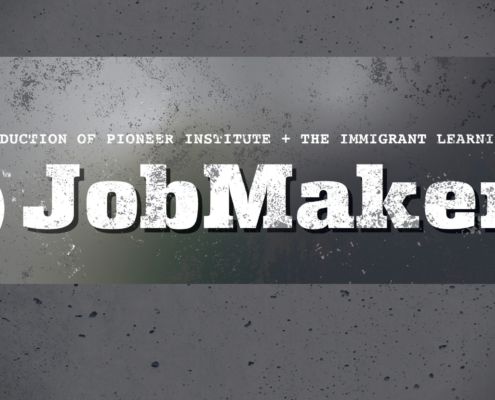A Bold New Agenda: Introducing Pioneer’s New Board Chair Adam Portnoy
/0 Comments/in Featured, News, Video /by Editorial StaffLast week, Pioneer Institute announced the appointment of Adam Portnoy, President and CEO of The RMR Group, as new Chair of our Board of Directors, succeeding Stephen D. Fantone, who recently stepped down after eight years of dedicated service. We are excited about this new stage in Pioneer’s development, and want to introduce Adam to all of you, our supporters.
In the video below, Adam shares thoughts on what inspired him to become more involved in Pioneer’s work, highlighting the Institute’s data-driven, forward-focused approach to advancing policy solutions and creating more opportunities for all. He also offers his vision for the future, building our community of supporters and increasing our public interest law activities to strengthen our policy impact – which is the core of the Institute’s new Pioneer2024 strategic plan. We hope you enjoy this chance to get to know Adam and hear his message!
Join us as we embark on this ambitious new agenda! Learn about membership opportunities.
Stay Connected!

Study Shows the Adverse Effects of Graduated Income Tax Proposal on Small Businesses

Poll Finds Mixed Views About Schools’ Pandemic Performance

Study: Systemic Failure in IDEA Implementation for Private School Students with Disabilities in Additional States

Study: Graduated Income Tax Proposal Fails to Protect Taxpayers from Bracket Creep

New Analysis: ICER Framework Ignores Patient Preferences, Innovation & Societal Benefits in Evaluating Cost-Effectiveness of New Cancer Treatments

Pioneer Institute, The Immigrant Learning Center Co-Produce New Weekly Podcast

New Study Warns Graduated Income Tax Will Harm Many Massachusetts Retirees

Study: Graduated Income Tax Proponents Rely on Analyses That Exclude the Vast Majority Of “Millionaires” to Argue Their Case

Report Contrasts State Government and Private Sector Employment Changes During Pandemic

Study Finds Massachusetts Graduated Income Tax May Be a “Blank Check” and Not Increase Funding for Designated Priorities

Report: Proposed Graduated Income Tax Might Not Increase State Education and Transportation Spending




